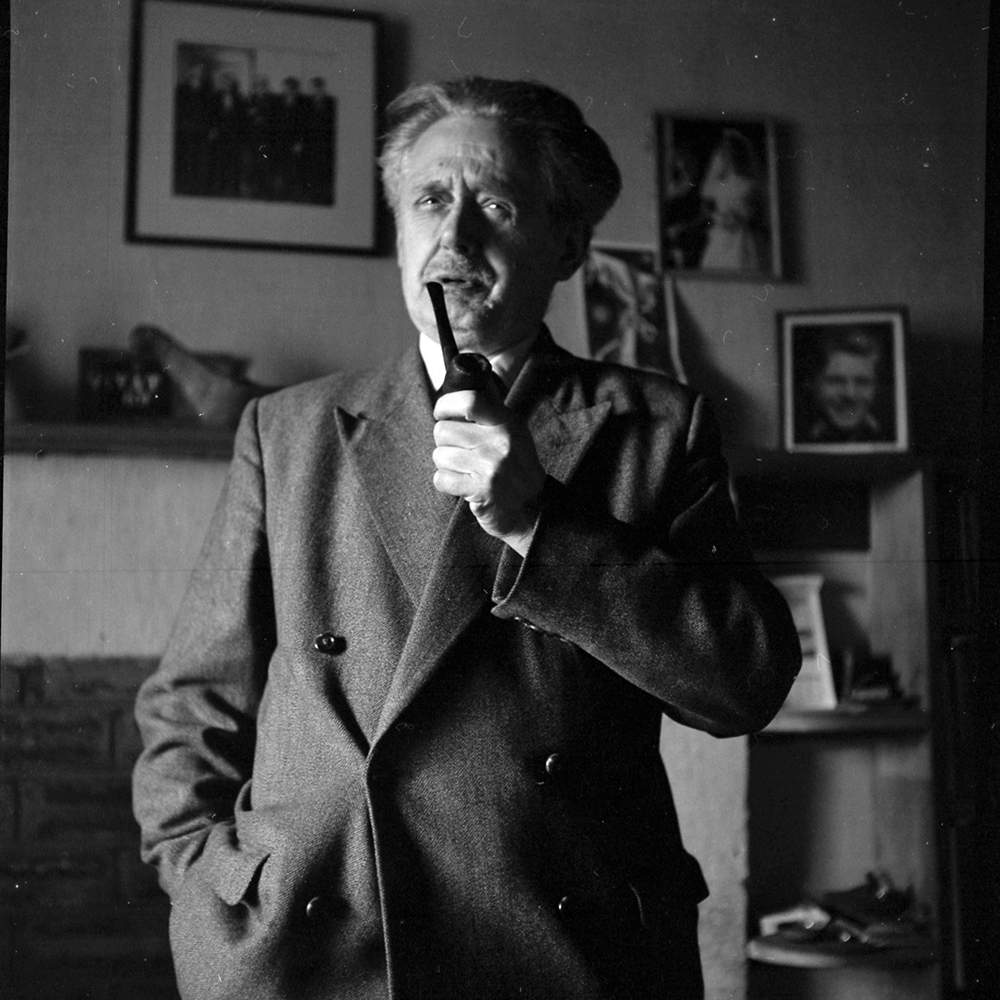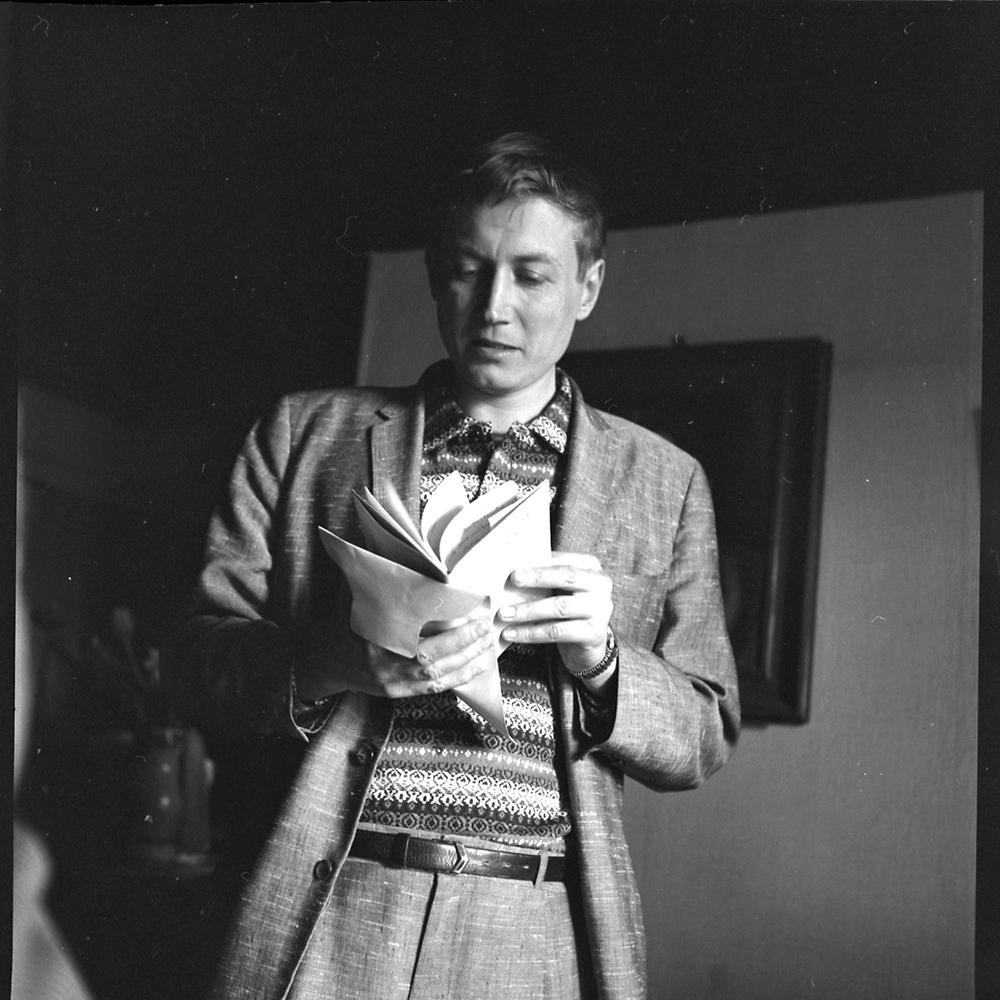In October 1962, the world stood on the edge of an abyss as the United States and the Soviet Union prepared for nuclear war over the presence of Soviet missiles in Cuba. Five months earlier, the charismatic Soviet poet Yevgeny Yevtushenko broke the political pack ice of the Cold War to visit Hugh MacDiarmid, one of Scotland’s greatest modern bards. Jim Gledhill recounts their unusual meeting in the Scottish Borders.
The poet who came in from the cold
Yevgeny Yevtushenko was born in the small Siberian town of Zima in 1933. He found fame in the Soviet Union in the late 1950s during the era of relative cultural freedom that followed the death of Joseph Stalin and his denunciation by the new Soviet leader Nikita Khrushchev. Although ever watchful, the Soviet authorities permitted a degree of free artistic expression in this era. Yevtushenko’s vibrant poetry challenged previous Soviet orthodoxies and the lacunae of Stalin’s long tyranny.
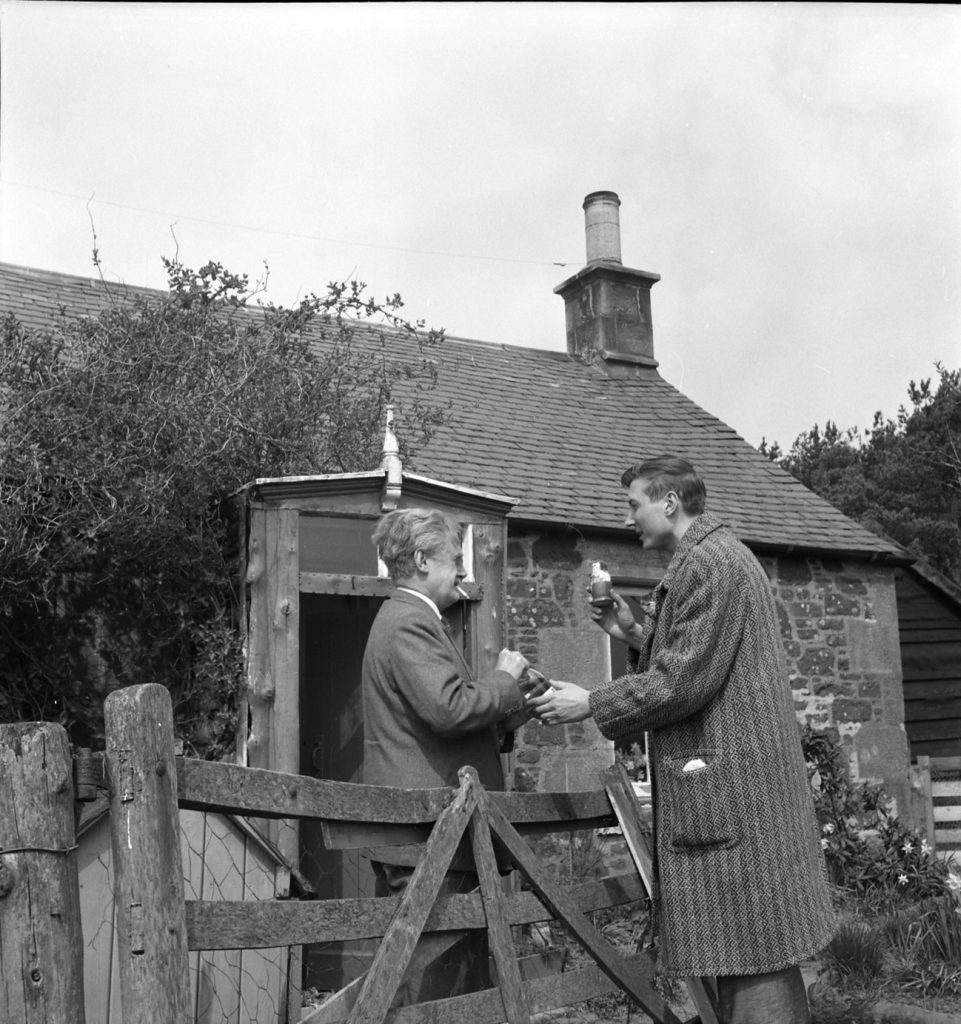
When Yevtushenko visited Britain in 1962, he was already a celebrated poet in his homeland. He had an international reputation that prompted the British Council to sponsor his tour. During his visit, he met renowned cultural figures T. S. Eliot and Henry Moore, but also engaged with many ordinary people on his travels. On 2 May, he touched down at Turnhouse Airport in Edinburgh with his wife Galya. Chain-smoking in his characteristic style, Yevtushenko gave a press conference to the large group of assembled journalists where he enthused equally about Robert Burns and Glasgow Rangers.
The Soviet couple travelled by car that morning to Hugh MacDiarmid and his wife Valda’s cottage Brownsbank, near Biggar in the Scottish Borders. MacDiarmid, a committed communist, warmly welcomed Yevtushenko and the two poets exchanged tokens of friendship. MacDiarmid, also a prodigious drinker, received a bottle of Russian vodka, and presented Yevtushenko with his poems Three Hymns to Lenin in return.
A meeting of minds
Joining the Soviet guests were the Hungarian photographer Michael Peto and Orcadian poet and filmmaker, Margaret Tait. Peto, an active socialist, had fled Hungary on the eve of the Second World War and pursued a career as a photojournalist in Britain, later photographing the Beatles among other stars of stage and screen. Tait would go on to make the experimental film Hugh MacDiarmid: A Portrait in 1964.
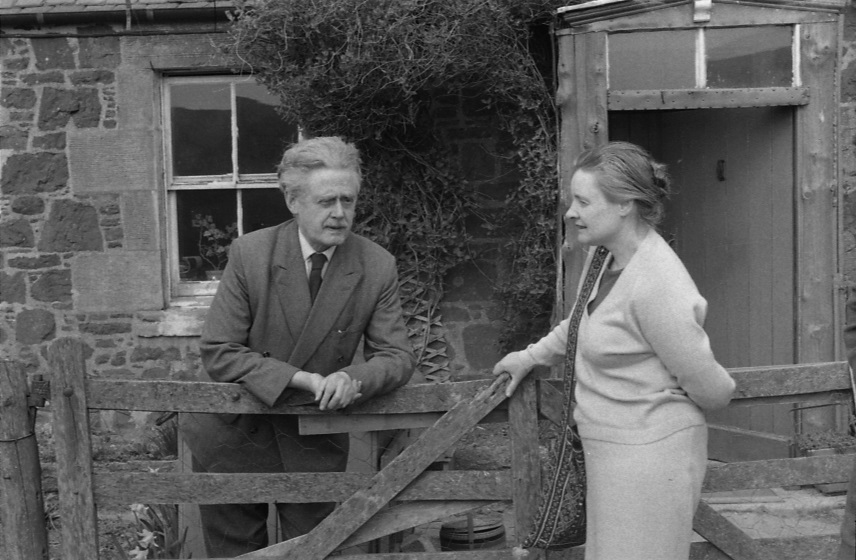
After coffee and cake, an intense political discussion ensued fuelled by vodka and lager, with the two poets seemingly at odds with one another. Having come of age during the Khrushchev ‘thaw’, the Yevtushenkos did not share MacDiarmid’s hard-line communist outlook and loyalty to the Party. MacDiarmid travelled widely in the communist world during the 1950s, visiting the Soviet Union and its Warsaw Pact satellites Hungary, Romania, Czechoslovakia and Bulgaria. During a trip to China in 1958, he met the country’s communist leaders, Mao Zedong and Zhou Enlai. Peto’s photographic document of the encounter at Brownsbank reveals a unique if somewhat awkward interaction, clearly frustrated by more than just the language barrier.
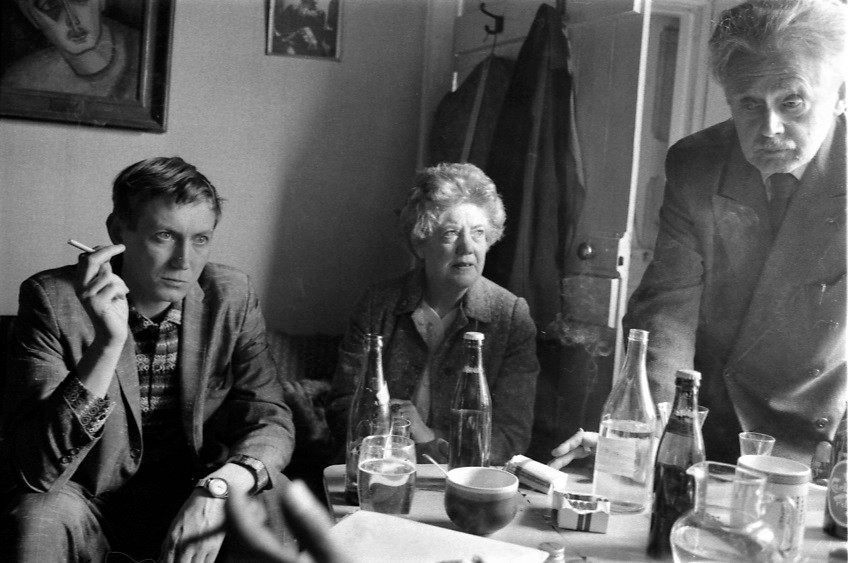
However, the two men shared an uncommon idealism and commitment to art as a force for social change. In 1961, Yevtushenko wrote passionately about the official Soviet silence over the Holocaust in Nazi-occupied Ukraine. Yevtushenko’s verse on the Babiy Yar massacre of 1941 inspired the legendary Soviet composer Dmitri Shostakovich’s Symphony No. 13 (1962), and a long campaign for memorialisation of the event.
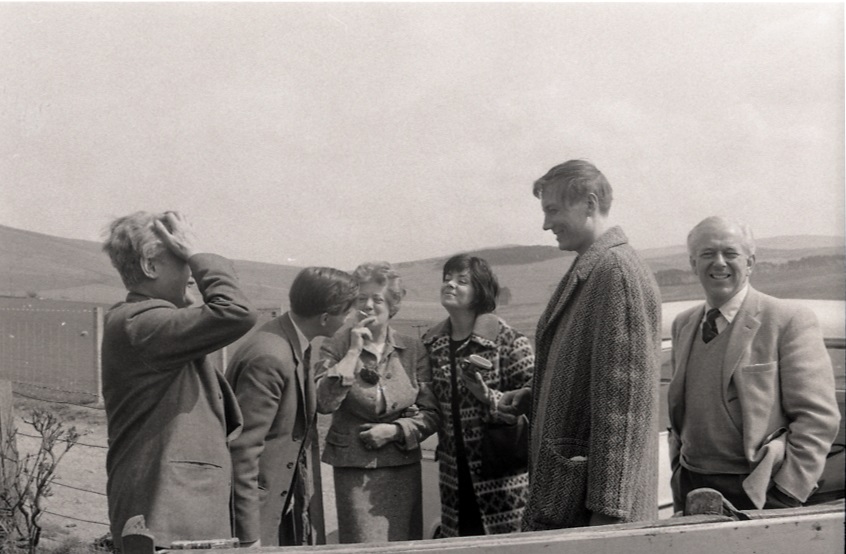
Common ground
Despite their political differences, the two poets parted on good terms with the group laughing and joking in the springtime air. Yevtushenko then drove back to Edinburgh where he read his poems to students in the University’s Old Quad.
The meeting at Brownsbank began a relationship between the two men which would be rekindled near the end of MacDiarmid’s life. In 1975 Yevtushenko returned to Scotland, where he was reunited with MacDiarmid in Glasgow by invitation of the University’s Slavonic department. At the event in the Bute Hall, Yevtushenko gave a reading alongside MacDiarmid and fellow Scottish poet Edwin Morgan.
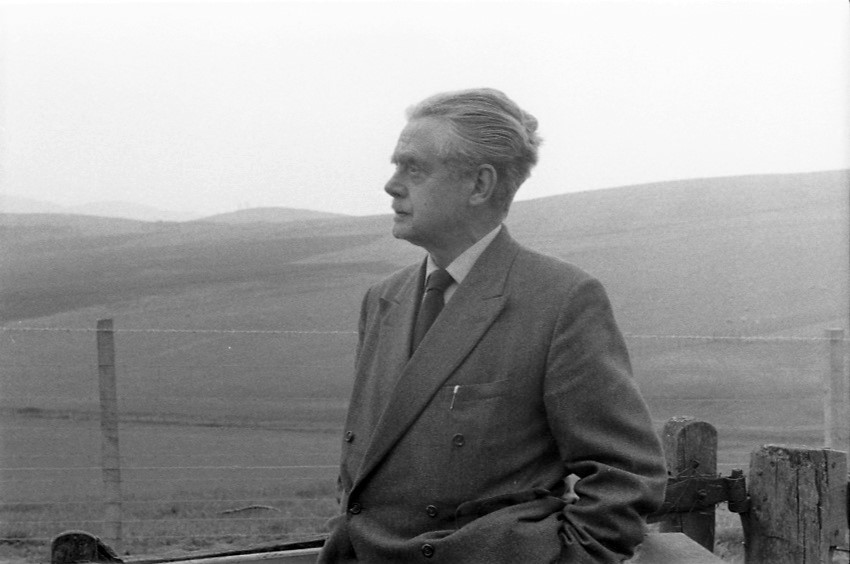
Yevtushenko’s 1962 tour also illustrates an enduring truth about the Cold War. The Iron Curtain was always permeable, and brave men and women were prepared to break the ice to find common ground, even in the shadow of nuclear annihilation.
The Materialising the Cold War project is a collaboration between National Museums Scotland and the University of Stirling funded by the Arts and Humanities Research Council. We aim to learn more about how and why objects from the Cold War have been collected and displayed by museums and how this heritage is understood by the public.

